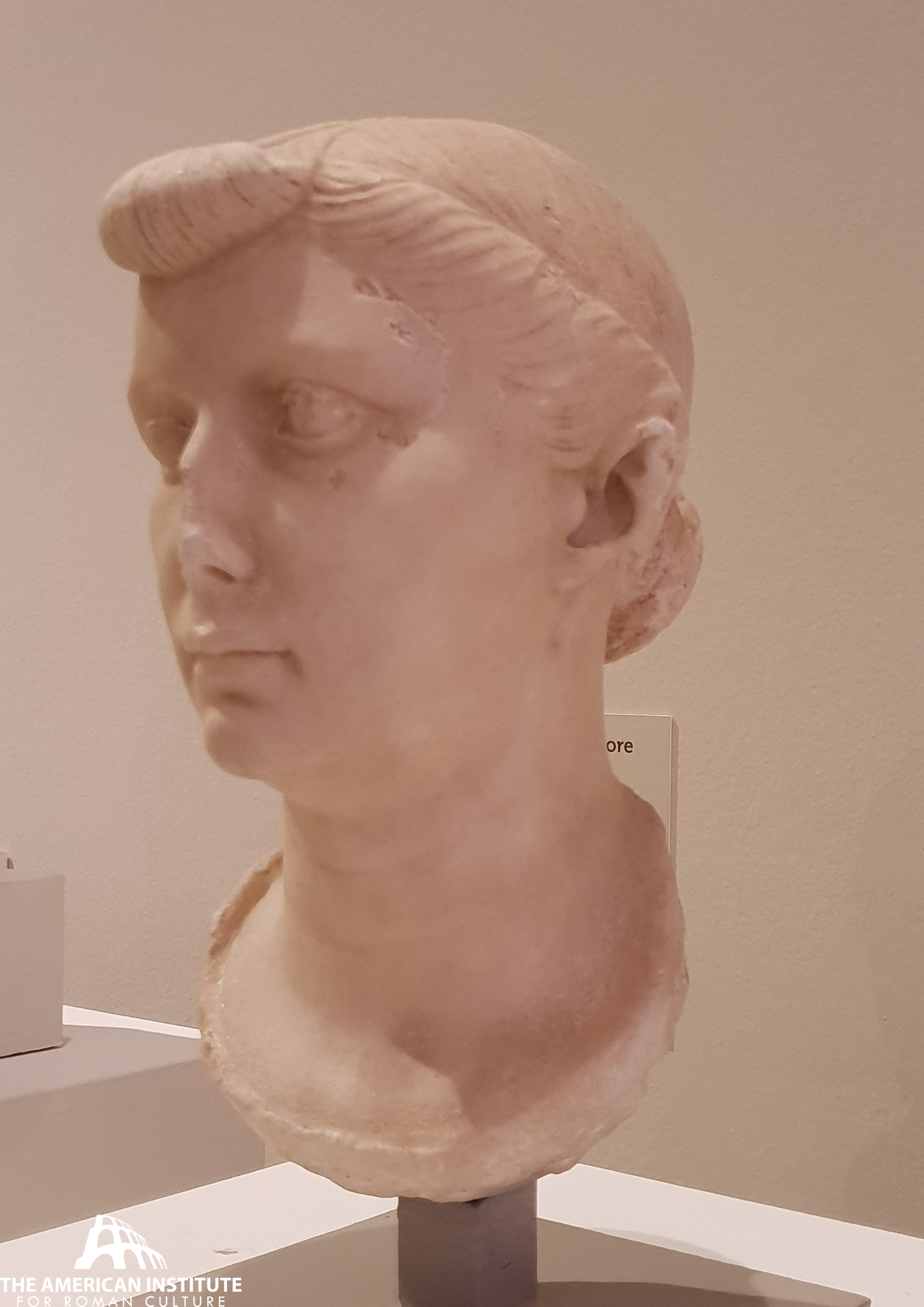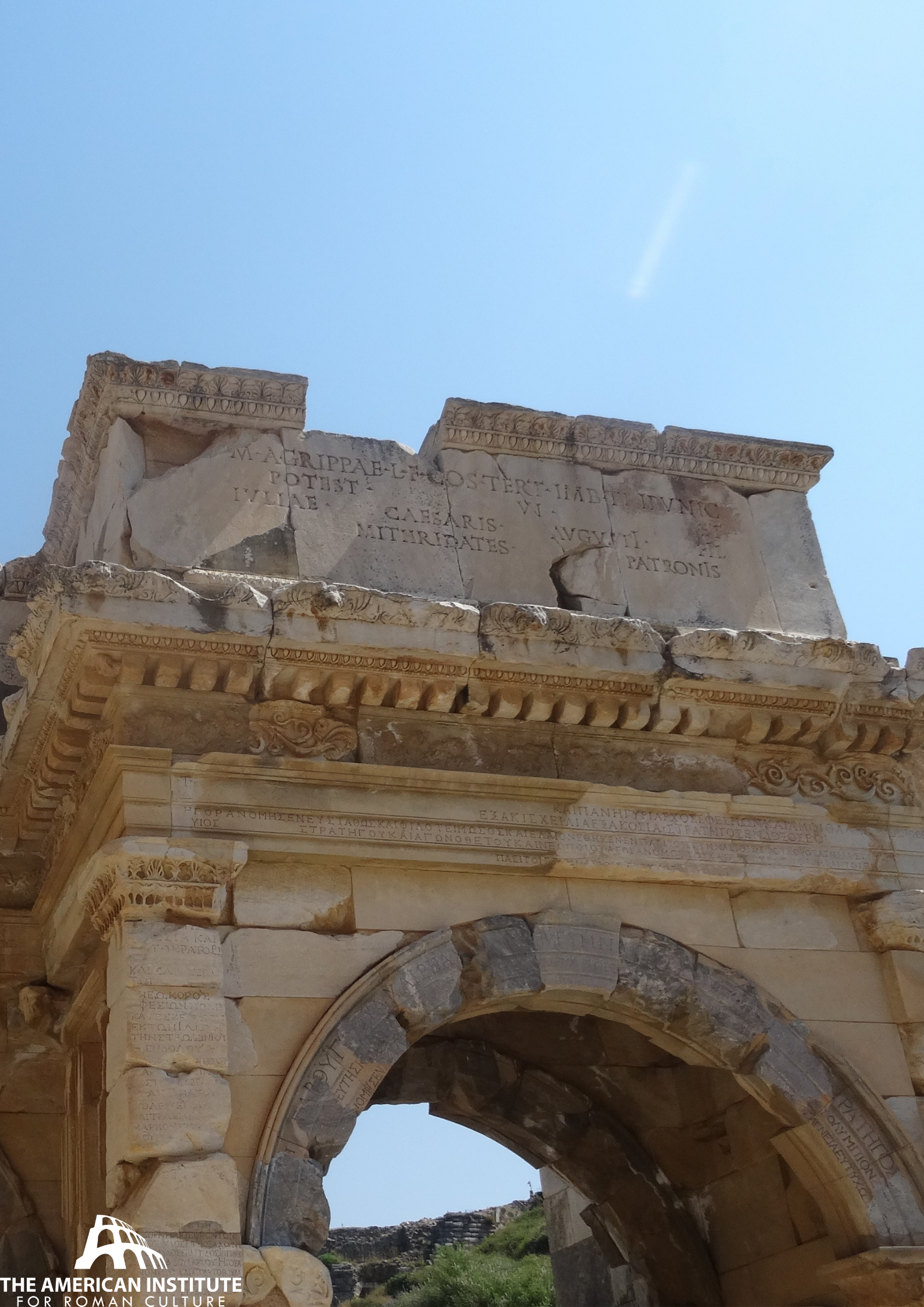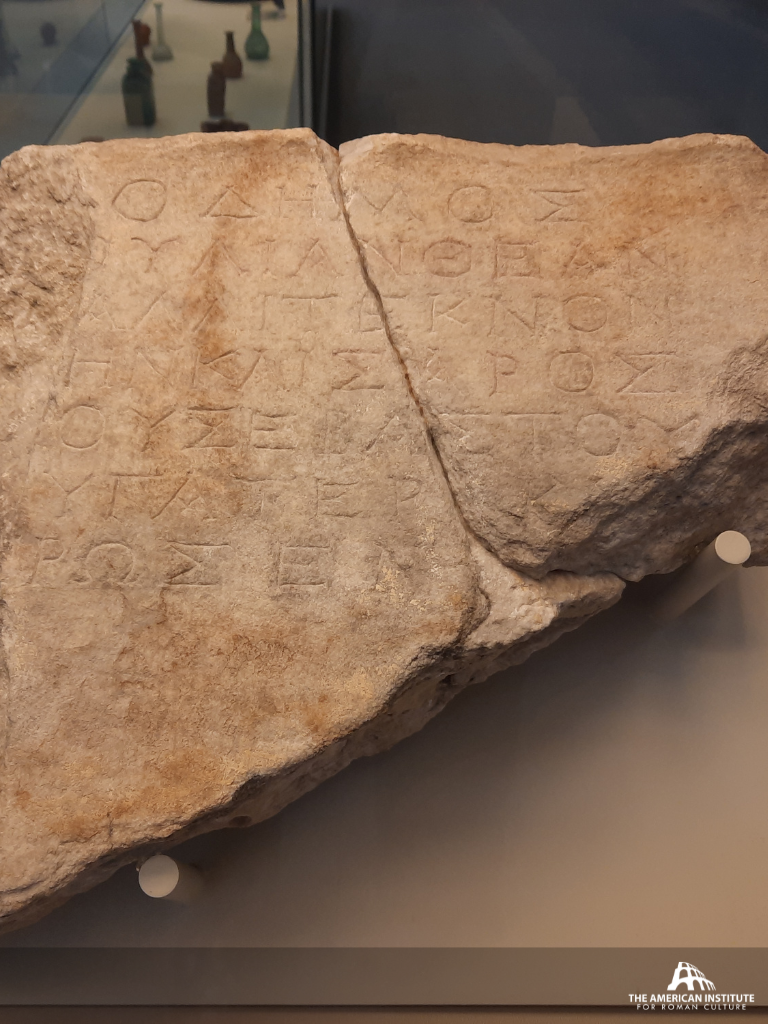Official Name: JULIA AUGUSTI FILIA
Birthdate: 39 BCE.
(Cassius Dio, Roman History, 48.34)
Birthplace: Rome, Italy.
Reign: Julia’s father, Augustus, was the first emperor of Rome.
(Suetonius, Life of Augustus, 63)
Marriages:
Marcellus (25 BCE – 23 BCE)
(Suetonius, Life of Augustus, 63) (Cassius Dio, Roman History, 53.27)
Agrippa (21 BCE – 12 BCE)
(Suetonius, Life of Augustus, 63) (Cassius Dio, Roman History, 54.6)
Tiberius (11 BCE – 2 BCE)
(Suetonius, Life of Tiberius, 7 & 11) (Cassius Dio, Roman History, 54.35)
Children:
Gaius Caesar (son by Agrippa)
Julia the Younger (daughter by Agrippa)
Lucius Caesar (son by Agrippa)
Agrippina the Elder (daughter by Agrippa)
Agrippa Postumus (son by Agrippa)
Unnamed son, died in infancy (by Tiberius)
(Suetonius, Life of Augustus, 64) (Suetonius, Life of Tiberius, 7)
Death: Julia died in exile at Rhegium (modern Reggio Calabria) in 14 CE.
(Cassius Dio, Roman History, 57.18) (Tacitus, Annals, 1.53)

Head of Julia in the Scuderie del Quirinale Ovid Exhibition, Rome, November 2018

Inscription mentioning Julia on the Gate of Mazeus and Mithridates in Ephesus, June 2019

Inscription dedicated to Julia, from the Sanctuary of Athena at Pirene, British Museum, London, December 2021
Julia was the daughter and only child of Augustus, Rome’s first emperor. Her life was marked by political marriages, personal scandals, and eventual exile. Despite her work to secure the line of succession, Julia’s behavior clashed with her father’s expectations, leading to a tragic downfall.
Born in 39 BCE, Julia was the daughter of Augustus and his second wife, Scribonia. On the day Julia was born, Augustus divorced her mother so he could marry Livia. In 31 BCE, when Julia was eight years old, her father became sole ruler of the Roman Empire.
Since Augustus had no sons, he needed Julia to have male children and provide him a successor. In 25 BCE, he married Julia to Marcellus, the son of his sister Octavia. Their union ended abruptly in 23 BCE when Marcellus died unexpectedly. They had no children.
In 21 BCE, Augustus married Julia to Marcus Agrippa, his close friend and advisor. Although Agrippa was twice her age, their marriage appeared harmonious. Together they had five children: Gaius, Julia, Lucius, Agrippina, and Postumus. Gaius and Lucius were adopted by Augustus and raised as his heirs. However, both boys died young, and none of Julia’s children ultimately became emperor.
After Agrippa’s death in 12 BCE, Julia was married to her stepbrother Tiberius, the son of Livia. Their marriage was strained from the start. Julia thought Tiberius was beneath her socially, and Tiberius criticized her morals. Together they had one son who died in infancy. They separated in 6 BCE, when Tiberius left Rome and retired to Rhodes.
During her marriages, Julia had numerous affairs with prominent Roman men. Following her separation from Tiberius, these affairs became more public and brazen. By 2 BCE, her father had discovered her infidelities. Julia’s behavior violated the Lex Julia, a series of laws passed by Augustus which promoted marriage and punished infidelity. Angered and humiliated, Augustus had Julia arrested on charges of adultery and treason. He exiled her to the island of Pandateria and punished several of her lovers, some by execution. Later, Julia was moved to the city of Rhegium and granted a modest allowance, but she was never allowed to return to Rome.
Julia lived the rest of her life in exile, stripped of her status and wealth. After Augustus’ death in 14 CE, power passed to Tiberius, who upheld her exile and cut off her financial support. Left destitute, Julia died of starvation and neglect later that year.
39
(Suetonius, Life of Augustus, 63)
21
(Suetonius, Life of Augustus, 63 & 64) (Cassius Dio, Roman History, 54.6)
2
(Cassius Dio, Roman History, 55.10)
This content is brought to you by The American Institute for Roman Culture, a 501(C)3 US Non-Profit Organization.
Please support our mission to aid learning and understanding of ancient Rome through free-to-access content by donating today.
Cite This Page
Cite this page as: Darius Arya, The American Institute for Roman Culture, “Julia the Elder,” Ancient Rome Live. Last modified 12/22/2024. https://ancientromelive.org/julia/
License
Created by The American Institute of Roman Culture, published on 10/13/2021 under the following license: Creative Commons: Attribution-NonCommercial-ShareAlike. This license lets others remix, tweak, and build upon this content non-commercially, as long as they credit the author and license their new creations under the identical terms. Please note that content linked from this page may have different licensing terms.


